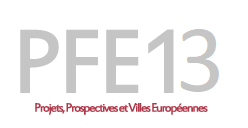What Are Information Portals?
Information portals serve as centralized online platforms designed to aggregate and deliver digital resources to users. These portals streamline knowledge access by organizing vast amounts of data into structured formats, making it easier for individuals and organizations to find what they need. From government services to academic research, information portals are essential tools in today’s fast-paced world.
The Importance of Information Portals in Modern Society
In an era where information is power, these platforms play a critical role in bridging gaps between users and the resources they require. They support decision-making, foster innovation, and ensure transparency across sectors. By prioritizing user-friendly design, information portals reduce the learning curve for new users, making them accessible to a broader audience.
Key Features of Effective Information Portals
- Comprehensive search functionality to locate specific digital resources quickly.
- Personalized dashboards that adapt to user preferences and behavior.
- Integration with real-time data sources to ensure up-to-date knowledge access.
How Information Portals Benefit Different Industries
Healthcare professionals rely on portals for patient records and medical research, while educators use them to share course materials and collaborate globally. Businesses leverage these platforms for market analysis and customer insights. For instance, lucky tiger casino $100 no deposit bonus codes demonstrate how even entertainment-based online platforms can offer value through targeted digital resources. Information portals also aid government agencies in improving public service delivery and policy implementation.
Choosing the Right Information Portal for Your Needs
Selecting the best portal depends on your specific requirements, such as the type of digital resources you need, the size of your user base, and the level of customization required. Consider factors like scalability, security, and the platform’s ability to support seamless knowledge access through intuitive interfaces.
Security and Privacy Considerations for Users
As information portals handle sensitive data, robust security measures are non-negotiable. Features like end-to-end encryption, multi-factor authentication, and compliance with regulations such as GDPR ensure user privacy. Regular audits and updates are essential to protect against emerging threats in the digital landscape.
Trends Shaping the Future of Information Portals
Artificial intelligence and machine learning are driving innovations in personalization and automation. Portals are increasingly adopting mobile-first designs to cater to on-the-go users. Additionally, the rise of open-source platforms is democratizing access to knowledge, allowing more communities to build and maintain their own information systems.
Case Studies: Successful Information Portals in the USA
Portals like USA.gov and PubMed Central exemplify how centralized digital resources can transform public and academic sectors. These platforms prioritize user-friendly design, enabling millions of users to navigate complex information effortlessly. Their success underscores the importance of investing in scalable infrastructure and continuous improvement.
Common Challenges in Developing Information Portals
Developers often face hurdles such as data silos, inconsistent user experiences, and the high cost of maintaining up-to-date digital resources. Overcoming these requires collaboration between stakeholders, agile development practices, and a commitment to fostering knowledge access through inclusive design principles.
Best Practices for Maintaining an Information Portal
Regular content updates, user feedback loops, and performance monitoring are crucial for long-term success. Ensuring compatibility with emerging technologies like voice assistants and augmented reality can future-proof these platforms. Prioritizing accessibility standards also ensures inclusivity for all users.
The Role of Technology in Advancing Information Portals
Cloud computing enables seamless scalability, while APIs allow portals to integrate with third-party services. Innovations like blockchain are being explored to enhance data integrity and trust in digital resource sharing. These advancements underline the evolving nature of information portals as hubs of interconnected knowledge.
User Experience Design in Information Portals
A well-designed portal minimizes cognitive load by using clear navigation, consistent layouts, and responsive interfaces. Incorporating user testing phases ensures that the platform meets the expectations of its target audience, reinforcing its role as a go-to source for reliable knowledge access.
Integration of Artificial Intelligence in Information Portals
AI-powered chatbots and recommendation engines enhance personalization, helping users discover relevant digital resources efficiently. Predictive analytics also enable portals to anticipate user needs, transforming static repositories into dynamic knowledge ecosystems.
Global Perspectives on Information Portals
While the USA leads in innovation, countries like Finland and Singapore have pioneered portals focused on civic engagement and lifelong learning. Comparing these models highlights opportunities for cross-border collaboration in developing portals that address universal challenges in knowledge access and digital equity.

COMMENTAIRES